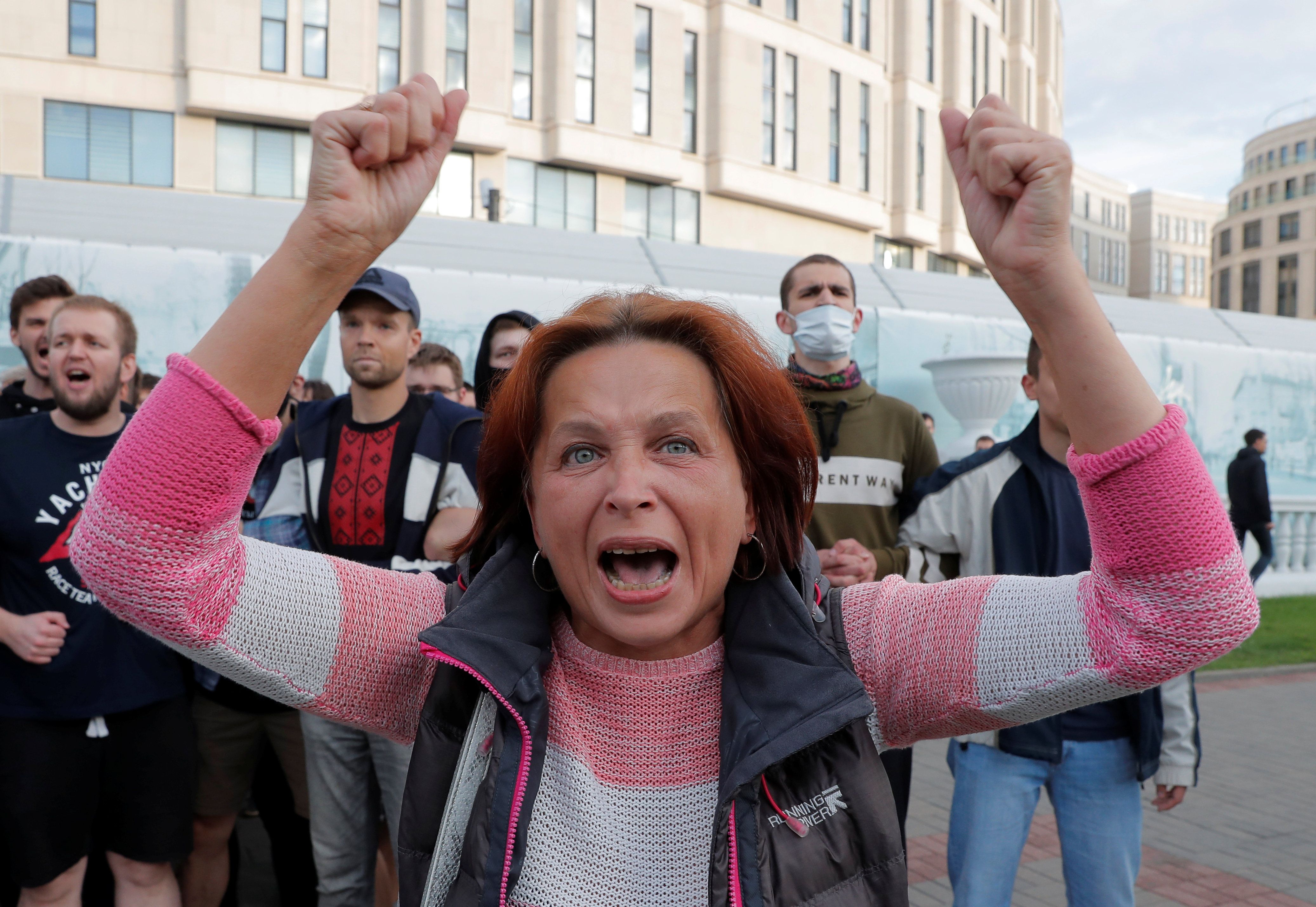A rare rally in Belarus: It's not often that you see people protesting a president known as "Europe's last dictator." But that's precisely what happened in the Belarusian capital of Minsk, as a brave few hundred protesters demonstrate against the government's decision to ban the two main opposition candidates from running in next month's presidential election. It's a rare show of defiance against President Alexander Lukashenko, who has ruled Belarus with an iron fist since the country emerged from the Soviet Union in 1991, and now wants a sixth term in office. But his hold on power could be waning due to popular exhaustion with his authoritarian style, a sluggish economy, and his ridiculous approach to the coronavirus pandemic: he's recommended "vodka and saunas" as a cure for the disease and refused to impose any lockdowns. So far Belarus has recorded more than 65,000 cases and about 500 deaths. We're watching to see whether the protests grow enough for Lukashenko to get into serious trouble ahead of the (almost assuredly rigged) vote.
Trump ends HK's special status: The Trump administration decided on Wednesday to end preferential economic treatment for Hong Kong, while authorizing sanctions on any US banks that do business with Chinese officials in charge of implementing China's controversial new security law there. Trump's move is the latest installment in Washington's tit-for-tat with Beijing over Hong Kong, which includes fresh tensions over the South China Sea, China's treatment of the Uighurs in Xinjiang, and US-China competition for global tech domination. China has already vowed to retaliate against Washington over the Hong Kong measures — we're watching to see what, exactly, that means.
Ethiopia is back online: The Government of Ethiopia has partially restored internet access nationwide, more than three weeks after the murder of a popular singer led to mass protests that prompted the government to pull the plug on the web. Hachalu Hundessa, whose songs call to empower the Oromo, the country's largest ethnic group, was gunned down last month in the capital city, Addis Ababa. Amid the subsequent unrest more than 200 people were killed and thousands arrested. A fragile calm has been restored, especially since the police detained two suspects in Hundessa's murder several days ago, and the government now seems comfortable enough to switch on the internet again. But violence can return as long as the murder remains unsolved. We're watching to see if Ethiopian Prime Minister Abiy Ahmed, an Oromo himself, succeeds in his efforts to unite ethnic groups to keep the peace in a deeply fragmented country.
More For You
100 million: The number of people expected to watch the Super Bowl halftime performance with Bad Bunny, the Puerto Rican superstar and newly minted Album of the Year winner at the Grammys.
Most Popular
Think you know what's going on around the world? Here's your chance to prove it.
An imminent US airstrike on iran is not only possible, it's probable.
Americans are moving less — and renting more. Cooling migration and rising vacancy rates, especially across the Sunbelt, have flattened rent growth and given renters new leverage. For many lower-income households, that relief is beginning to show up in discretionary spending. Explore what's changing in US housing by subscribing to Bank of America Institute.
